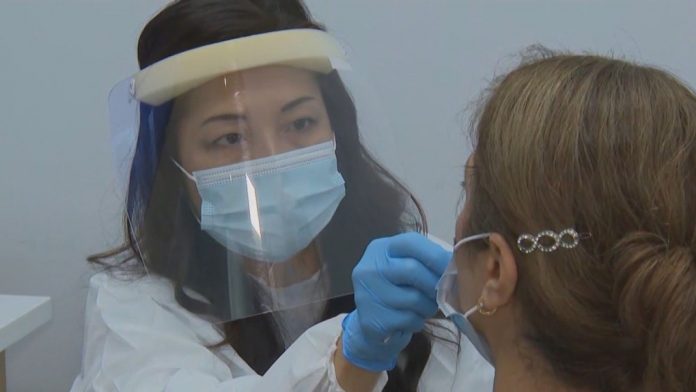Everyone flying into Canada is now required to provide proof of a recent negative test result for COVID-19 as of 11:59 p.m. EST Wednesday.
This new stipulation, which was announced last week, brings Canada in line with dozens of other countries, including France, Portugal, Brazil and Russia. Some airlines have also implemented similar rules, even for flights that are landing in countries that do not have this requirement.
In Canada, the requirement applies to all air passengers five years of age or older, regardless of whether their travel is considered essential or non-essential. Exemptions apply to air crew members, emergency service providers and anyone on a plane that is only landing in Canada to refuel.
All passengers for whom those exemption circumstances do not apply must present their airline with proof of a negative result from a PCR test taken within 72 hours of their scheduled departure time. Without that proof, the government says, they will not be allowed to board their flight.
PCR tests – short for polymerase chain reaction tests – involve swabbing a person’s nose or throat to take a sample, then analyzing the sample to determine whether that person had COVID-19 at the time of the test. It is the most common method of rapid-testing to detect current cases of COVID-19.
Tests acceptable for air passengers entering Canada include those from laboratories that have been accredited by governments, those from laboratories that have membership in a professional association, and those from laboratories that have been accredited by the International Organization for Standardization.
The test may be covered by a travel insurance plan. If it is not, it is up to the passenger to pay for their own test.
Even with proof of a negative test, travellers entering Canada must quarantine for their first 14 days in the country. Anyone whose quarantine plan is not considered acceptable will be placed in a federal quarantine facility.
Federal quarantine facilities will also be used to house anyone who is arriving in Canada from a country that does not offer PCR tests.
Passengers on Canada-bound flights will still have to answer health screening questions, undergo temperature checks and wear masks as required.
Violating any of these requirements can result in charges under the Quarantine Act, with maximum penalties of up to six months in jail or a fine of up to $75,000. However, even when violations are referred to law enforcement, only warnings are issued in the majority of cases.
The federal government recommends that anyone unsure how they can obtain a PCR test outside the country contact their airline, local health authorities or the nearest Government of Canada office.
According to the Public Health Agency of Canada, approximately 6,000 cases of COVID-19 in the country – just under two per cent of the total – have been linked to international travel.
































